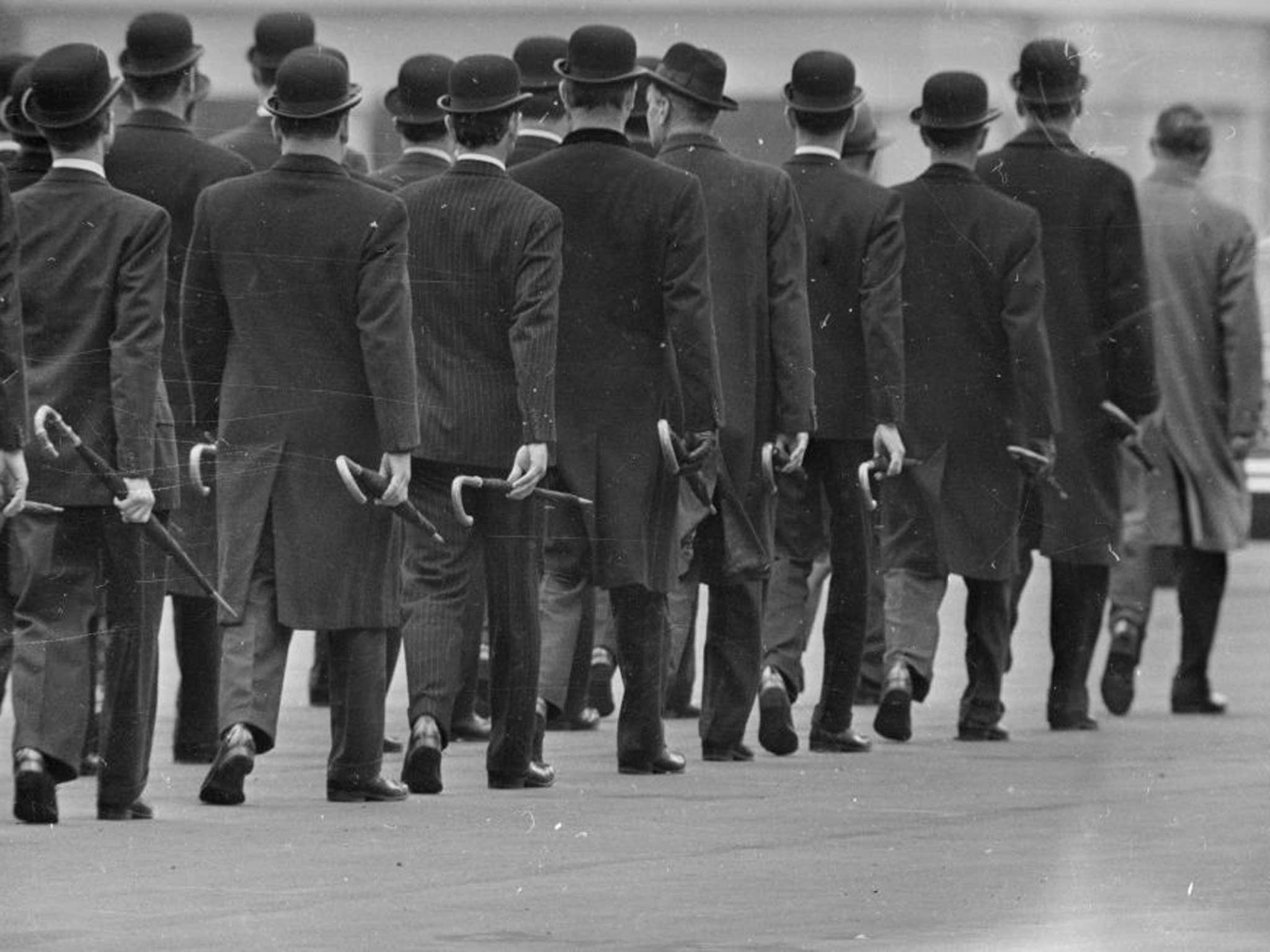Suddenly everyone's an expert
But it’s not only in football that everyone thinks they know best. The era of expertise is ending

It was a bad week for the expert. Not only was a succession of soccer pundits – their number included Phil Neville, Robbie Savage and Alan Shearer – abused by the twitterati for an apparent lack of charisma, but a second and somewhat more recherché row broke out involving new EU directives for the inspection of abattoirs.
These, it was alleged, would prohibit the dissection of carcasses and, their detractors maintained, would result in much that was unwholesome ending up on the consumer’s dinner-plate. Nonsense, retorted the man from the Department for Environment, Food and Rural Affairs (Defra), the new regulations were thoroughly scientific and would result in the dissemination of a whole lot fewer bacteria.
As the BBC announced that it was standing by its World Cup commentariat, and the abattoir-inspectors, one of whom declared that he would never eat a sausage again, kept up their fire on Defra, the person for whom I felt most sympathy was a blameless 60-year-old named Philip Neville. Not only had deutero-Neville received some of his alter ego’s hate mail, but he turned out to be a retired referee, and, as such, keen to stress his own qualifications in the professional field involved. In fact, the other Mr Neville deposed, he reckoned he would be just as good in a television studio as the man whose “robotic” delivery alarmed the watching hordes during the England-Italy game.
The suspicion that he had a point was reinforced by some footage that appeared on the BBC news on the morning of the England-Uruguay match. This featured a group of children from the England striker Daniel Sturridge’s old school in Birmingham, who, after wishing their alumnus well, were invited to comment on the national team’s prospects. As, one by one, a playground-full of bright, articulate 10-year-olds canvassed the advantages of playing Wayne Rooney “in the hole” or gamely forecast an England victory, the viewer could be forgiven for thinking, first, that they ought to have been instantly shipped out to São Paulo to replace Savage and co, and, second, that here was an uncannily apt reflection of the highly problematic relationship that the civilised world enjoys with the expert.

As associations go, this one is comparatively short-lived, for the “expert” is a recent cultural phenomenon. Until the end of the 19th century, no such person existed. There were merely “authorities” – lexicographers, classicists, scientists, cartographers – admired for their nous, but only in exceptional cases required to demonstrate it to the public. The expertise of the average man or woman was their own, rarely tabulated but handed down by previous generations, and therefore sacrosanct. What changed, and challenged, the man in the street’s faith in his own knowledge was the wide-scale expansion of the apparatus of the late-Victorian state and, a little later, under the auspices of the 1945 Labour government, that state’s control of large parts of industry, commerce and scientific research.
The forward march of Leviathan not only created a vast, status-conscious bureaucracy, it also professionalised a great many pursuits that had previously got by on amateur zeal, and brought an unheard-of degree of specialisation to the arts and education. Its consequences can be seen in most of the popular art of the post-war era, particularly comedy films from the Ealing studios, which are crowded out with regulation-enforcing Men from the Ministry, white-coated scientists and bureaucratic hautes fonctionnaires laying down the law to the cowed humanity who stray into their path. From Passport to Pimlico (1949) to The Titfield Thunderbolt (1953) a whole strain of post-1945 cinema consists of Joe Public taking on the expert and leaving him speechless in the dust.
Where had the expert gone wrong? Most obviously by presuming on his or her expertise, using it to interfere in the lives of people he or she was supposed to be helping, patronising those who lacked expertise themselves, and for becoming, in the end, a potent symbol of the institutionalising processes that by the early 1960s had gathered up and regularised so much hitherto untrammelled British life. The music critic Ian MacDonald notes in his study of Beatles records, Revolution in the Head, that John Lennon’s “I am the Walrus”, previously thought of as simply a cloud of random imagery, is actually an anti-institutional rant which reaches an incidental high-point with the line “expert, texpert, choking smokers, don’t you think the joker laughs at you?”
At the same time, the febrile social conditions of the 20th century meant that the pendulum was always capable of swinging back the other way. Authors and dramatists might amuse themselves with “the gentleman in Whitehall” who “knows best” (a phrase uttered by the Labour minister Douglas Jay with no irony whatsoever), but as the vogue for “how to” books and business primers demonstrated, numbers of the upwardly mobile were sufficiently unconfident to need specialist advice on how to behave, how to prosper, how to win friends and influence people – advice that no longer seemed procurable close to hand. Here the expert could reassure, bring seriousness to endeavours that might previously have been thought trivial or even morally questionable.
In the early 1990s, for example, when the first wave of explicit sex instruction videos was unleashed on the market, the producers were worried that they might run into trouble with the British Board of Film Censors who, suspecting that this was merely an excuse to show people having sex, would demand cuts. They solved this problem by hiring doctors, or at least “sexologists”, and getting them to front the proceedings while dressed in white coats. All taint of salacity was instantly removed and 18 certificates fell like confetti on Dean Street. No expert, obviously, could knowingly lend his name to a smut-fest, and sobriety was guaranteed.
Move forward 20 years, on the other hand, and our relationship with the specialist knowledge-broker, particularly in the field of professional sport, becomes even more difficult to unravel. On the one hand the enraged viewer who listens to X the pundit returning extremely obvious replies to what must be said are generally extremely obvious questions is entitled to believe that he could do better himself. On the other, X very probably made several hundred Premiership appearances in his time, and would one really want an unknown plucked from the terraces in his place? And so X is no longer truly an expert, he is only a symbol of expertise, there by default. All this is further complicated, beyond the world of football, by the fact that with the rise of electronic media and the widespread availability of corroborative data we are all experts now, or at least all people with opinions who are entitled and indeed encouraged to express them at the slightest provocation.
In the mundane field of literary criticism, for instance, one publishes a book review in The Guardian in the certain knowledge that it will attract several hundred online comments, nearly all from people who seem to know a great deal more about the subject than one does oneself. Naturally, literary criticism is not an exact science. Neither, as Phil Neville has discovered to his cost, is soccer punditry. But it is horribly ironic that one of the great casualties of a technological revolution bent on diffusing expertise and knowledge to the widest possible audience should be its originator, the man or woman in the real or metaphorical white coat.
Join our commenting forum
Join thought-provoking conversations, follow other Independent readers and see their replies
Comments
Bookmark popover
Removed from bookmarks